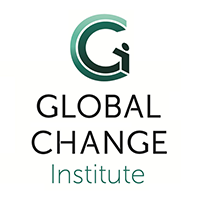Knowledge and inequality: bringing the human face to science
By GCI Postdoc Dr Ruwa Matsika

Surely, I asked myself, as scientists our job is to research and create the knowledge, sometimes teach university classes and publish in journals - which are kind of in the public domain, thank you Internet. If someone else is that interested in the knowledge we generate surely they can find it if they look for it. But the reality is that most of the journals we target are subscription based, that journal articles are often written in the secret language of science which is inaccessible to the everyday person, and to attend a lecture one must be a registered student at university, or have very good Internet to catch a live stream. We externalise the problem of the inherent exclusion of a large chunk of the population from accessing our knowledge and our own role in it, considering it someone else’s problem to solve.
But we know that unequal access to knowledge and information is one of the structural issues reinforcing pervasive poverty and inequality in South Africa today. After all, in our knowledge-based economy, access to higher education is considered one of the equalisers in an extremely unequal society. It provides you an entry-point to better paying jobs, higher income and presumably a good standard of living. So what you know and your ability to articulate it oftentimes determines your path to success and economic equity.
Should anyone be surprised then, that the issue of fees as a barrier to accessing higher education and knowledge has become a sticking point for the vast majority of students from less-privileged backgrounds? One that threatens social cohesion, brings about disruption and protest and yes, blocks us from our offices and prevents us as scientists from getting on with the business of the day - which is generating knowledge for the benefit of society. I wonder if anyone else sees the irony in that statement.
My point is this, how often do we consider our own role as gatekeepers to knowledge in reinforcing inequality in the society around us? Perhaps it is a stretch but I believe that we have a social responsibility to guard against this and it is simple. We should be more deliberate in our efforts to communicate and share the wonders of our discoveries to all levels of society - not just our academic peers, fellow scientists and sometimes policy makers. Our skills and knowledge are valuable goods that can also be offered "pro bono" to the society around us.
In the fast-paced technological world of Twitter, Facebook, YouTube, Instagram, TEDTalks, blogs and online newspapers, the options available to communicate new thoughts, ideas and findings to new and different audiences are almost unlimited. We can also make ourselves more available to share our knowledge with different audiences such as business, civil society and community-based organisations in their pursuit of sustainable economic, social and environmental development.
Perhaps we need to reconsider our identity as "Researcher", which stops at uncovering new information, to "Knowledge-Influencer", which goes beyond that to our contribution to society around us and acknowledges the power and responsibility we bear.
We know that at its root, inequality is about the extreme imbalance of power in our societies between the haves and the have-nots and this split is most apparent amongst financial lines but also plays out along gender, class and racial lines to name a few. It is a global crisis and not just limited to South Africa. But it is a problem that we can take action against in a meaningful way, no matter how seemingly small it may seem. For, if knowledge is power and we are the gatekeepers of that power - what greater social responsibility can us as scientists take on, than to help redistribute that power between the haves and the have-nots?


